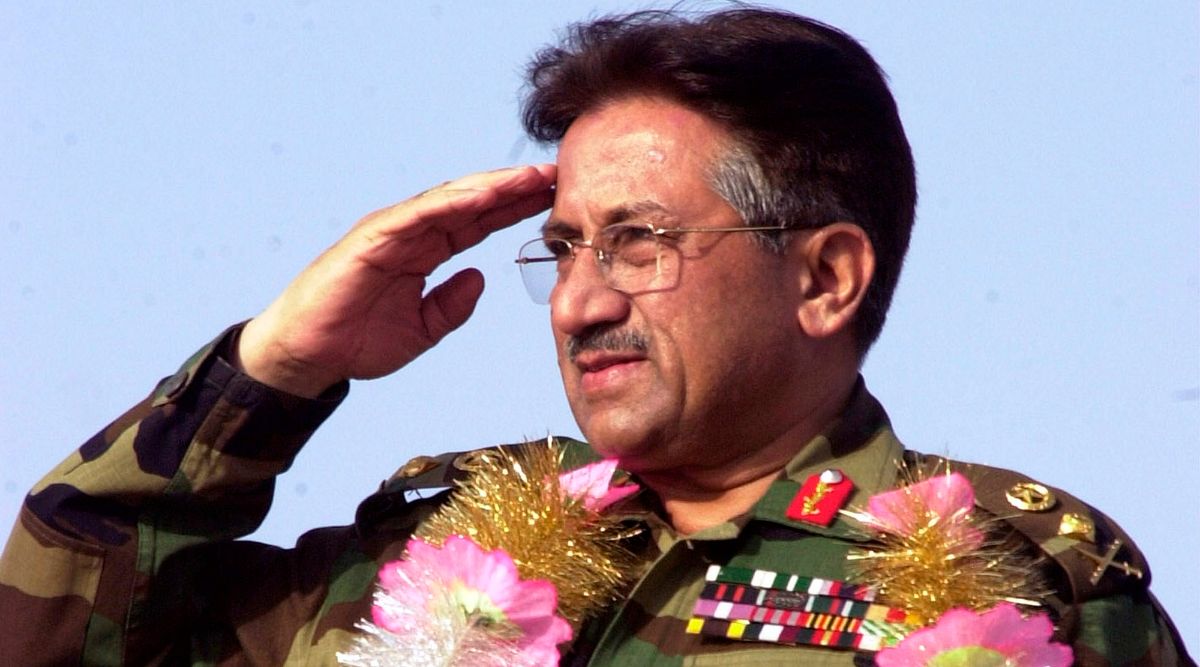Tilak Devasher

The 1999 Kargil operation that Musharraf would become infamous for had been considered at least twice earlier, once under Ziaul Haq and once under Benazir Bhutto when Musharraf was DGMO. It had been rejected on both occasions as being a sure recipe for a full-blown war with India.
The third time, the planners were successful, since Musharraf was in charge. The Kargil intrusions hinged on two critical assumptions: India would not be able to replenish supplies quickly to launch a counter-attack even though Pakistan had no information on Indian reserves stocks in Leh and beyond; India would not or could not respond in enough strength to dislodge the Pakistanis. Both assumptions would be proved wrong due to the ferocity of the Indian response.
The moot question in the whole Kargil fiasco was whether or not Sharif was briefed about the operations and if he gave the go-ahead. In his book In the Line of Fire, Musharraf wrote that the army had briefed the PM on several occasions. Sharif disputed these claims. Musharraf’s claims have also been contradicted by Sartaj Aziz, the then foreign minister who asserted that prior to the May 17, 1999 briefing, no mention was made about the role of the Pakistani army or paramilitary personnel or crossing the LOC to occupy any positions.
The other moot question about Kargil is whether Musharraf asked Sharif to speak to and visit President Clinton or whether it was Sharif’s own initiative. Musharraf claimed that in the meeting of the Defence Committee of the Cabinet (DCC) on July 2, he told Sharif that the military situation was under control but whether to withdraw or not was a political decision that Sharif would have to take. He further held that though the DCC meeting was inconclusive, Sharif took a sudden decision to go to Washington without consulting anyone and “the decisions taken in Washington were totally his.”
Interestingly, neither Sharif nor Musharraf mentioned the June 24-25 1999 visit of Centcom commander Anthony Zinni. He had been directed by the White House to lead a presidential mission to Pakistan to prevail upon Sharif and Musharraf to withdraw their forces from Kargil. In his meetings, Zinni found that neither Musharraf nor Sharif argued with his reasoning about a full-scale war and nuclear annihilation if they did not withdraw. The problem, however, was the national humiliation that the Pakistani leadership would have to bear. A face-saving way out of the mess was a meeting with President Clinton. However, Zinni insisted that the meeting would be held only after a withdrawal of forces, even though Sharif was initially disinclined to withdraw before the summit meeting. Sharif “finally came around and he ordered the withdrawal” and a meeting with President Clinton was set up for July. In Zinni’s meeting with Sharif, Musharraf did not utter a word. Soon after his return to Washington, US satellites picked up movements indicating that the Pakistanis were getting ready to move back. It was then that Zinni gave the green light to the White House for the meeting.
Clearly, according to Zinni’s version, Musharraf was fully aware of the US suggestion of a withdrawal. Additionally, he was also aware that the offer of a meeting with Clinton was dependent on agreeing to a withdrawal and Sharif had, in fact, agreed to such a withdrawal in Musharraf’s presence and before Zinni left for the US. Musharraf’s autobiography and his subsequent claims that he was not aware that Sharif would agree to a withdrawal were thus a travesty of the truth because they suggest that he was not a party to Sharif’s plans which was not true.
While Musharraf claimed that the ceasefire in Kargil was a military triumph, to others, it was obviously not. As Shahzad Chaudhry a senior air force officer put it “… his (Musharraf’s) adventurous assault in Kargil had brought about an all-round embarrassment. Only Bill Clinton’s 4th of July intervention could help save us some face… there hasn’t been a bigger strategic blunder in Pakistan’s recent history.”
Musharraf’s tall claims about the Kargil operation contrasted harshly with the autopsies of dead Pakistani soldiers that revealed the presence of grass in their stomachs. This indicated that the Pakistani soldiers had been left on their own because of which they ran out of food. The Pakistan army also refused to take back their dead bodies and had to be buried by the Indian army.
Another consequence of Kargil was, as noted by Bruce Riedel, that the refusal of the US to reward Pakistan for its aggression and insist on withdrawal to the LOC, had an immediate and positive impact on the Indo-US relationship. “Doors opened in New Delhi to Americans that had been shut for years. The Indian elite — including the military — and the Indian public began to shed long-held negative perceptions of the U.S.”
No comments:
Post a Comment